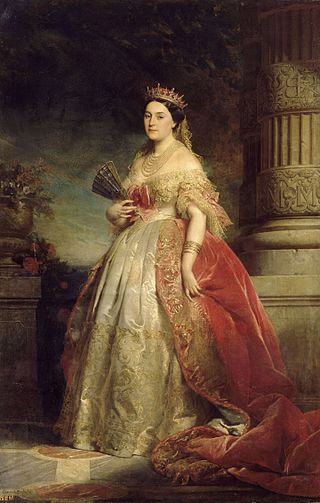
Mathilde Laetitia Wilhelmine Bonaparte, Princesse Française, Princess of San Donato, was a French princess and salonnière. She was a daughter of Napoleon's brother Jérôme Bonaparte and his second wife, Catharina of Württemberg, daughter of King Frederick I of Württemberg.
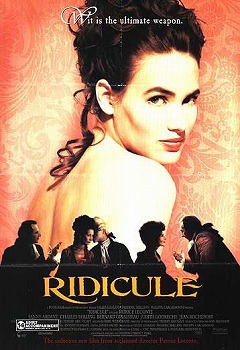
Ridicule is a 1996 French period drama film directed by Patrice Leconte and starring Charles Berling, Jean Rochefort, Fanny Ardant and Judith Godrèche. Set in the 18th century at the decadent court of Versailles, where social status can rise and fall based on one's ability to mete out witty insults and avoid ridicule oneself, the film's plot examines the social injustices of late 18th-century France, in showing the corruption and callousness of the aristocrats. Ridicule was selected as France's submission and was nominated for the Best Foreign Language Film at the 69th Academy Awards.

Anne Louise Bénédicte de Bourbon was the daughter of Henri Jules de Bourbon, Prince of Condé, and Anne Henriette of Bavaria. As a member of the reigning House of Bourbon, she was a princesse du sang. Forced to marry the Duke of Maine, legitimised son of Louis XIV and Madame de Montespan, she revelled in politics and the arts, and held a popular salon at the Hôtel du Maine as well as at the Château de Sceaux.

Tamara Toumanova was a Russian-born Georgian-American prima ballerina and actress. A child of exiles in Paris after the Russian Revolution of 1917, she made her debut at the age of 10 at the children's ballet of the Paris Opera.

Fils de France was the style and rank held by the sons of the kings and dauphins of France. A daughter was known as a fille de France.

Germaine Yvonne Arnaud was a French-born pianist, singer and actress, who was well known for her career in Britain, as well as her native land. After beginning a career as a concert pianist as a child, Arnaud acted in musical comedies. She switched to non-musical comedy and drama around 1920 and was one of the players in the second of the Aldwych farces, A Cuckoo in the Nest, a hit in 1925. She also had dramatic roles and made films in the 1930s and 1940s, and continued to act into the 1950s. She occasionally performed as a pianist later in her career. The Yvonne Arnaud Theatre was named in her memory in Guildford, Surrey.
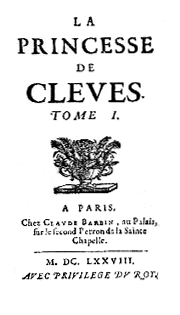
La Princesse de Clèves is a French novel which was published anonymously in March 1678. It was regarded by many as the beginning of the modern tradition of the psychological novel and a classic work. Its author is generally held to be Madame de La Fayette.

Lionel John Alexander Monckton was an English composer of musical theatre. He became Britain's most popular composer of Edwardian musical comedy in the early years of the 20th century.

Arthur Reed Ropes, better known under the pseudonym Adrian Ross, was a prolific writer of lyrics, contributing songs to more than sixty British musical comedies in the late 19th and early 20th centuries. He was the most important lyricist of the British stage during a career that spanned five decades. At a time when few shows had long runs, nineteen of his West End shows ran for over 400 performances.

Cendrillon (Cinderella) is an opera—described as a "fairy tale"—in four acts by Jules Massenet to a French libretto by Henri Caïn based on Perrault's 1698 version of the Cinderella fairy tale.
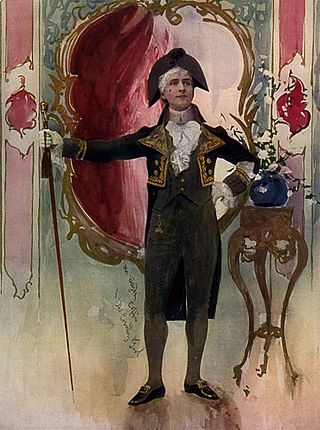
A Country Girl, or, Town and Country is a musical play in two acts by James T. Tanner, with lyrics by Adrian Ross, additional lyrics by Percy Greenbank, music by Lionel Monckton and additional songs by Paul Rubens.
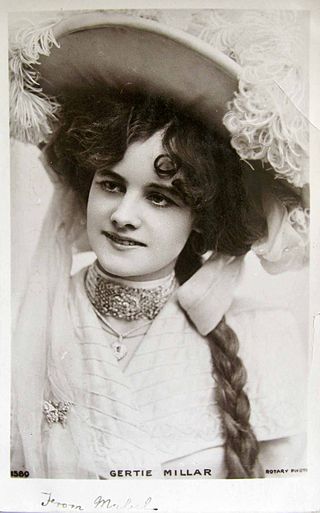
Gertrude Ward, Countess of Dudley, known as Gertie Millar, was an English actress and singer of the early 20th century, known for her performances in Edwardian musical comedies.

Yola d'Avril was a French-American actress, who appeared in numerous productions between 1925 and 1953. She was also known as Yola Vermairion and Yola d'Avril Montiague.

A prince du sang or prince of the blood is a person legitimately descended in male line from a sovereign. The female equivalent is princess of the blood, being applied to the daughter of a prince of the blood. The most prominent examples include members of the French royal line, but the term prince of the blood has been used in other families more generally, for example among the British royal family and when referring to the Shinnōke in Japan.

Élisabeth of Lorraine was a French noblewoman and the Princess of Epinoy by marriage. She is often styled as the princesse de Lillebonne. She was the mother of Louis de Melun, Duke of Joyeuse and of Anne Julie de Melun, princesse de Soubise.

Scarlet and Black is a British four-part television drama series first aired in 1993 on BBC 1 by the BBC with a cast including Ewan McGregor and Rachel Weisz. The series was adapted by Stephen Lowe from the novel The Red and the Black (1830) by French writer Stendhal. The story follows an ambitious, but impoverished young man, who seduces women of high social standing in order to improve his prospects.

Un caprice is a play written in 1837 by Alfred de Musset and performed for the first time in 1843 at the French theatre in Saint Petersburg, the Mikhaylovsky Theatre, then in France at the Comédie-Française on 27 November 1847.
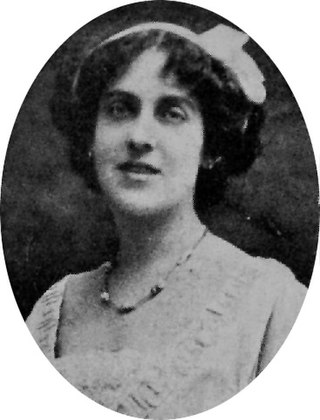
Elsie Spain, born Elsie Rickets, was an English opera singer and actress, best known for her performances in soprano roles of the Savoy Operas with the D'Oyly Carte Opera Company from 1908 to 1910 and in operettas and Edwardian musical comedies. She was one of the last leading ladies in the Gilbert and Sullivan roles personally trained by W. S. Gilbert. Among her roles in musicals, she originated the part of Princess Mathilde in the long-running The Quaker Girl.

Le cœur et la main is a three-act opéra comique with music by Charles Lecocq and words by Charles Nuitter and Alexandre Beaume. It was first performed on 19 October 1882 at the Théâtre de Nouveautés, Paris.
Madame Acquaire also known as Mlle Babet, was a French stage actress and theatre director, active in Saint-Domingue.




















